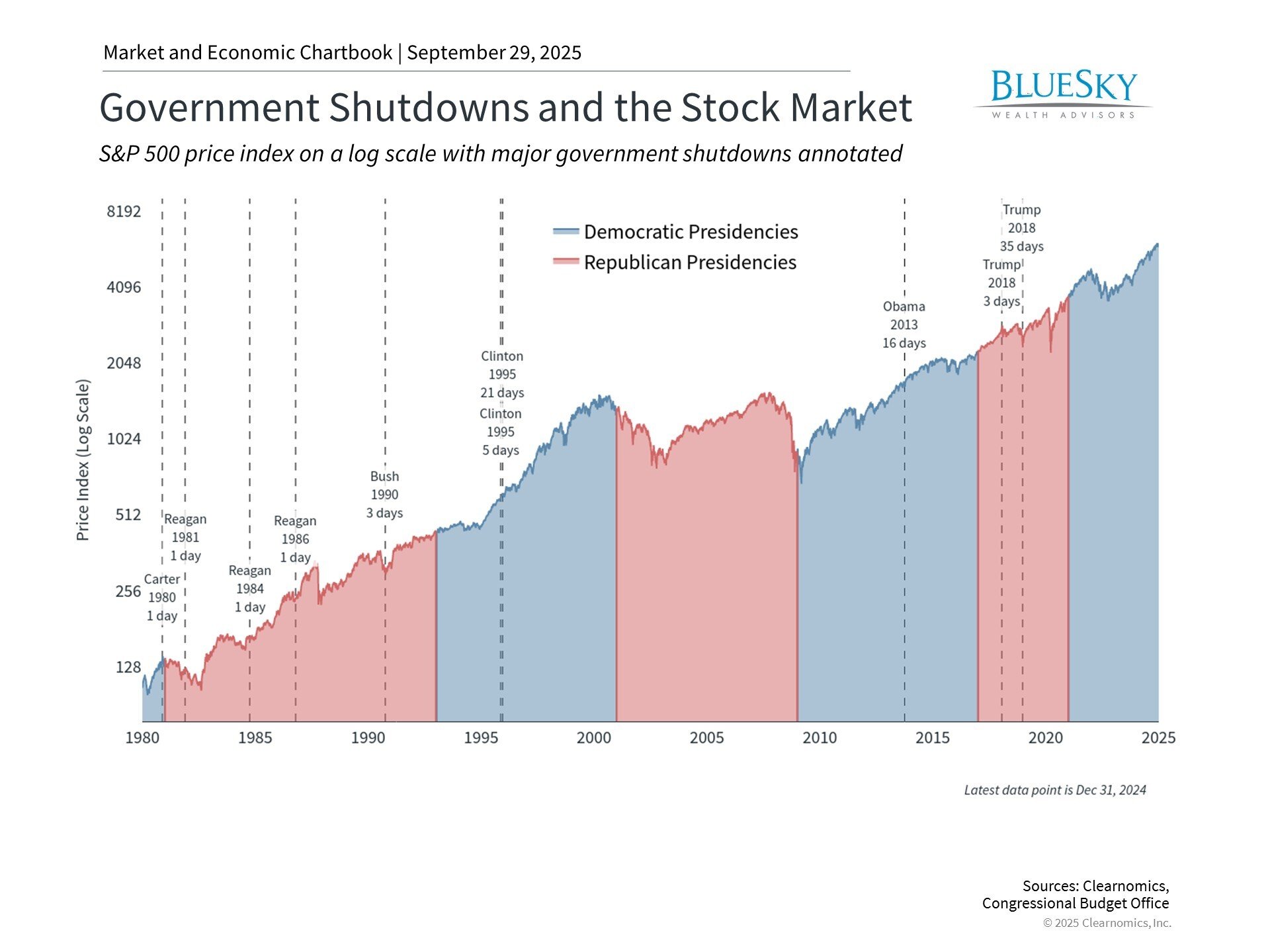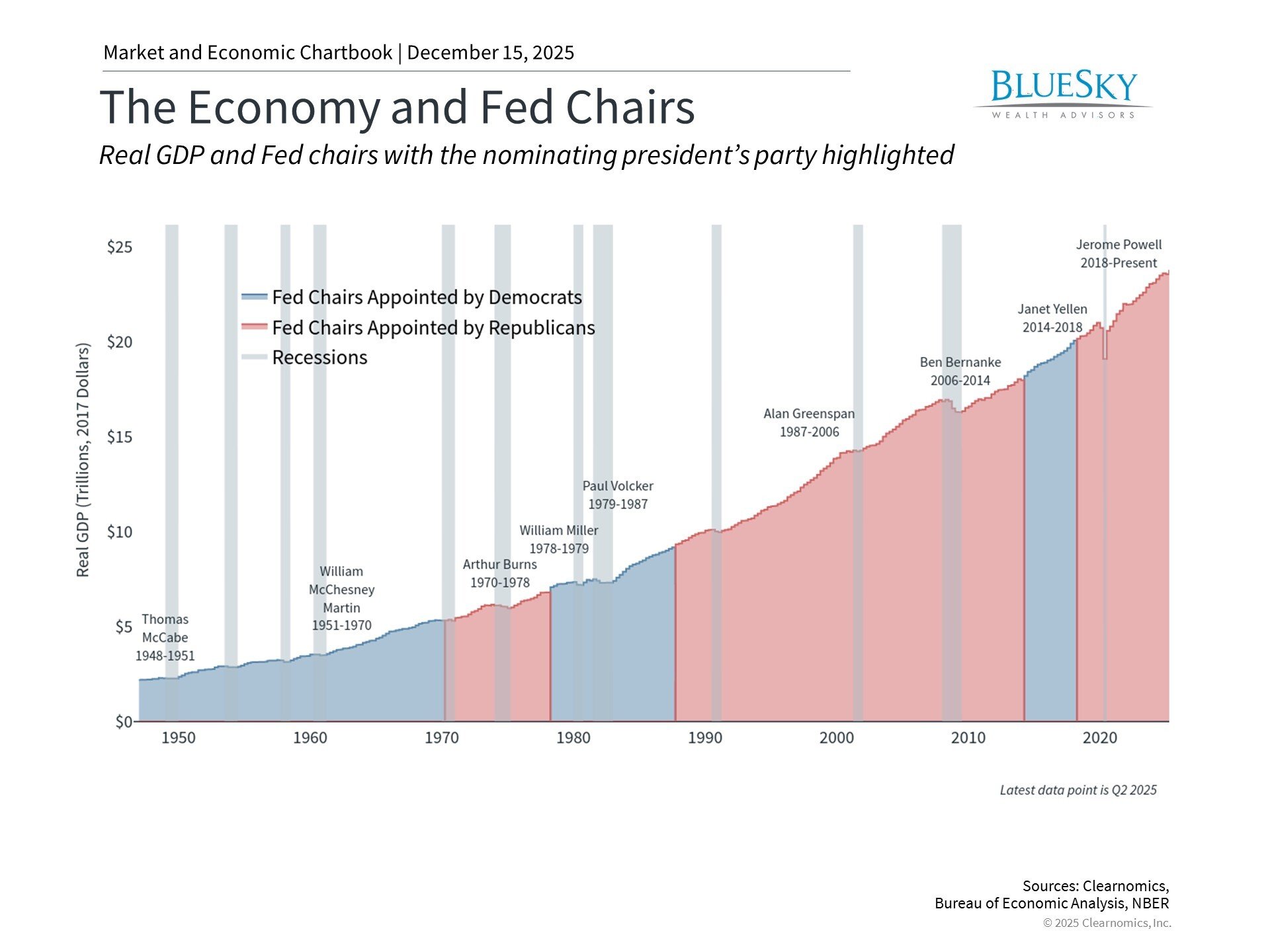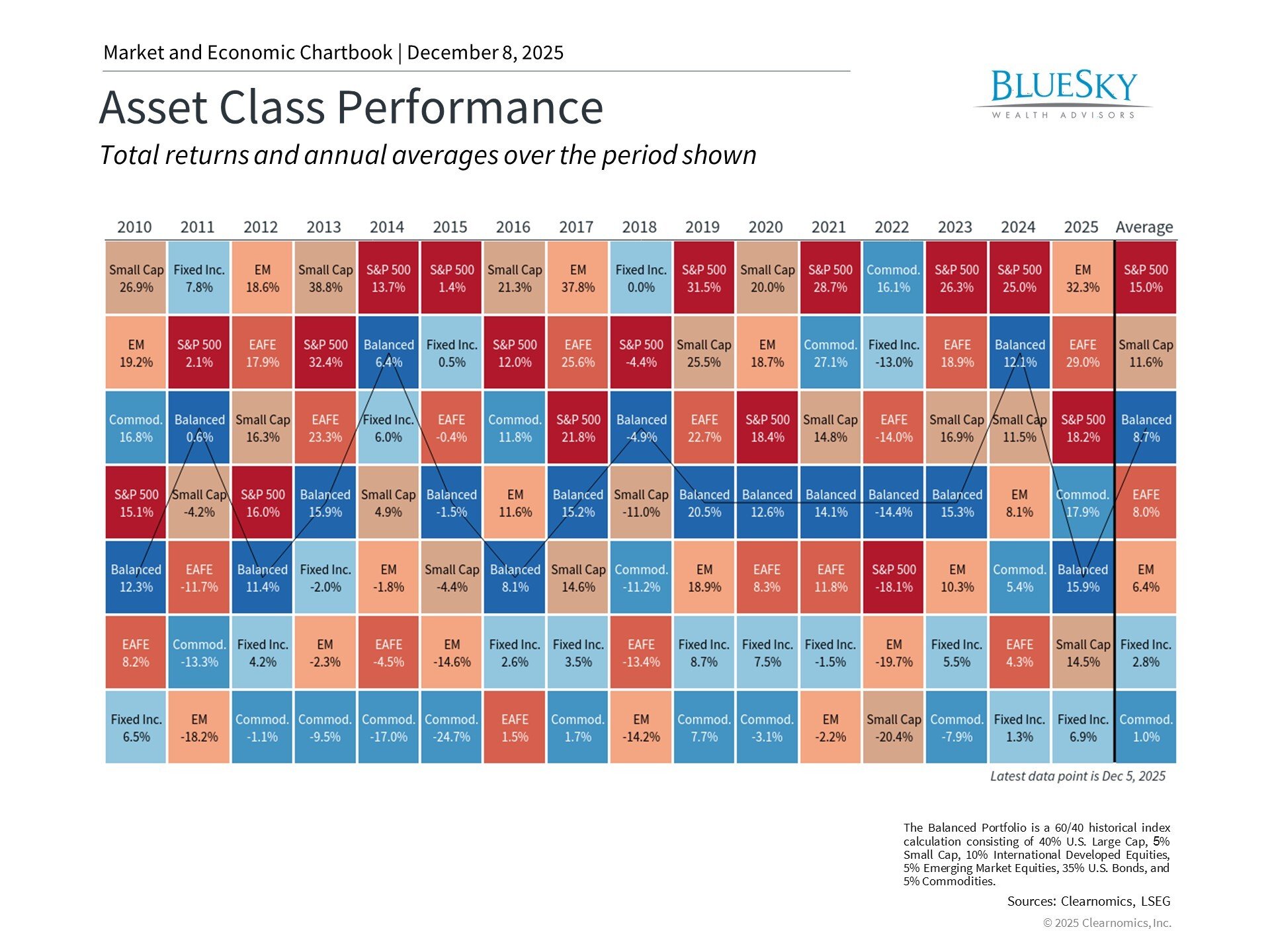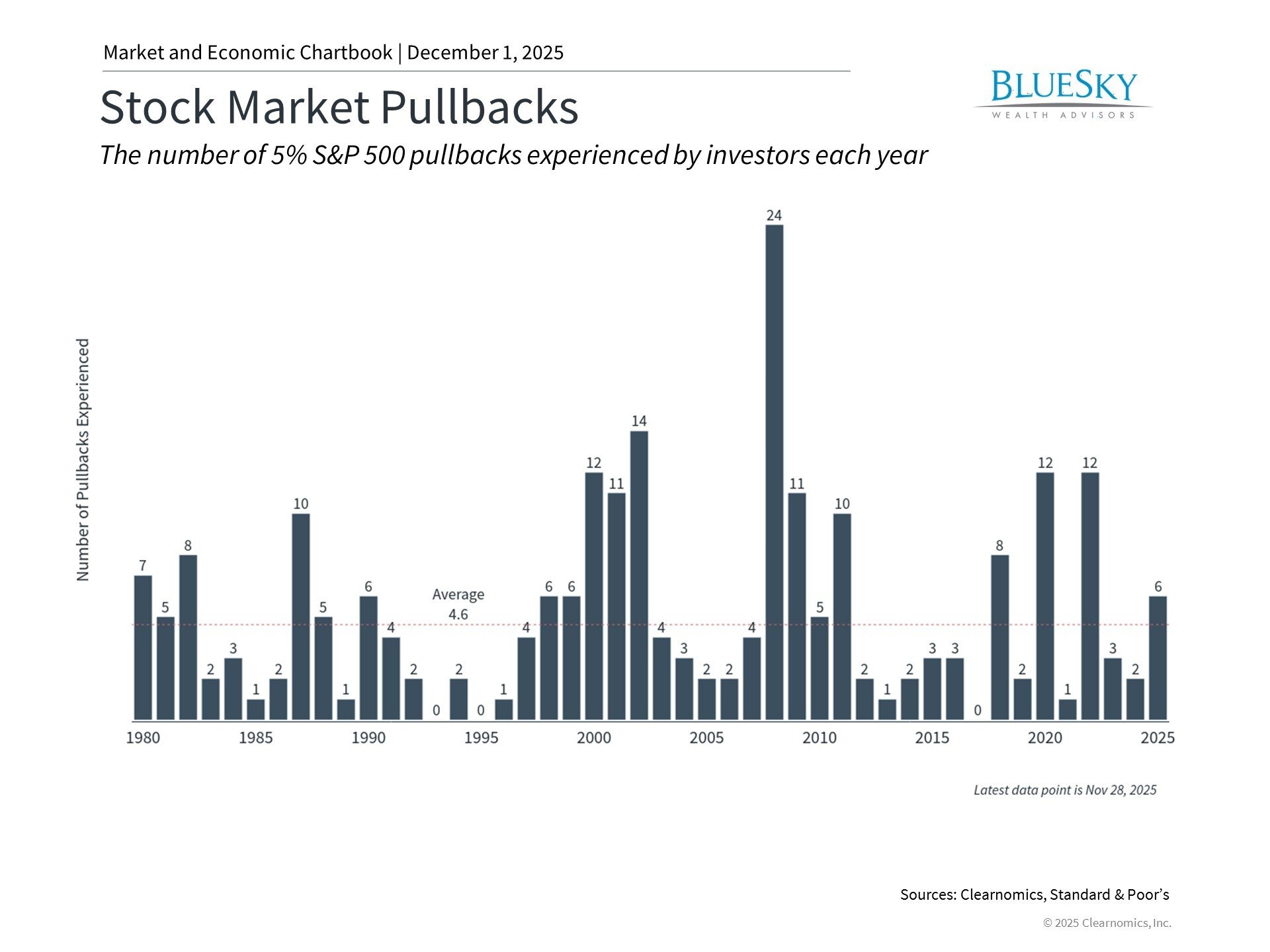
Market Impact of Government Shutdowns: Historical Perspective for Investors
Market Impact of Government Shutdowns: Historical Perspective for Investors

Federal funding debates once again capture Washington's attention as lawmakers face the possibility of a government shutdown without reaching a new spending agreement. This development comes during a period when various government policies concerning trade, taxation, immigration, and other areas have generated economic and market uncertainty.
Investors naturally question how political developments might influence their investment portfolios, particularly those worried about budget deficits and national debt levels. Examining historical trends and understanding why markets typically overlook these events can help investors maintain proper perspective during times of political impasse.
While Washington political theater can generate uncertainty, historical evidence demonstrates that government shutdowns usually produce limited effects on financial markets. Although shutdowns can genuinely impact government employees, their influence on financial markets has been historically modest. For investors with long-term horizons, these situations underscore the importance of distinguishing between political opinions and financial strategies. This becomes particularly crucial when daily news cycles emphasize contentious issues that historically haven't influenced investment portfolios.
Historical data shows minimal market and economic impact from government shutdowns

Each year, the federal government must approve a budget for the upcoming fiscal year starting October 1. Although the government enacted the "One Big Beautiful Bill Act" this year establishing tax and spending frameworks, a specific budget remains necessary to distribute actual funding to various departments and agencies. Missing this deadline could trigger a government shutdown, causing service lapses and employee furloughs.
Congress rarely meets budget deadlines on schedule. This pattern isn't shocking given Washington's increasingly divided political climate, where reaching compromises has grown more challenging. Throughout nearly five decades, Congress has successfully passed appropriations legislation before fiscal year deadlines only occasionally, making eleventh-hour negotiations standard practice. A common congressional solution involves "continuing resolutions" that provide temporary government funding during legislative negotiations. Republicans currently advocate for a seven-week interim funding measure for this purpose.
The included chart demonstrates that government shutdowns have regularly occurred since 1980 across different presidential administrations, with minimal lasting effects on financial markets. This pattern held true even during highly contentious shutdowns, including those under Reagan's presidency, Clinton's 21-day closure in 1995, Obama's 16-day shutdown in 2013, and Trump's record-setting 35-day shutdown spanning late 2018 to early 2019. From an investment perspective, shutdowns have typically represented temporary interruptions rather than fundamental economic growth threats.
Underlying political divisions drive shutdown scenarios

Current circumstances stem from disagreements regarding spending priorities, particularly healthcare-related expenditures. While immediate government funding remains the primary concern, these budgetary conflicts reveal fundamental differences about government's role and fiscal accountability. With federal debt approaching 120% of GDP, broad consensus exists regarding fiscal discipline needs, yet fundamental disagreement persists about implementation methods.
This situation's distinctive aspect involves the administration's instruction for agencies to develop permanent workforce reduction strategies beyond standard temporary furloughs. This approach differs from previous shutdown procedures and might generate more enduring employment market and fiscal spending consequences. It's worth noting that furloughed federal employees automatically receive retroactive compensation once shutdowns conclude, a policy established during negotiations ending the 2018-2019 shutdown.
Some investors might conflate shutdown threats with other fiscal concerns like debt ceiling issues. Debt ceiling problems emerge when previously approved government spending requires payment, but the Treasury Department lacks authorization to borrow beyond established limits. Congressional action to raise the debt limit provides the only solution in such scenarios, otherwise risking government default on obligations. These fiscal challenges contribute to major credit rating agencies downgrading U.S. debt below AAA status. Fortunately, the One Big Beautiful Bill Act increased the debt ceiling by $5 trillion, postponing this concern considerably.
Financial markets prioritize economic fundamentals over political news cycles

Despite investor concerns about the nation's fiscal direction, government shutdowns have typically proven unremarkable for financial markets. The explanation is simple: shutdowns represent temporary disruptions that don't alter fundamental economic conditions.
Shutdowns can impact economic data releases, potentially affecting crucial information used by investors and economists, including Bureau of Labor Statistics employment reports and Consumer Price Index data. However, this usually only postpones data availability, with normal reporting resuming after shutdowns end. Extended shutdowns might create modest economic growth obstacles as federal workers postpone spending and government services face interruption.
The Economic Policy Uncertainty chart above illustrates how tariffs and taxation issues earlier this year presented substantial investor challenges. Nevertheless, with recent clarification on both matters, this measurement has declined toward historical averages. While shutdowns could potentially increase uncertainty, historical evidence shows that even prolonged government disruptions haven't typically affected investors.
The bottom line? While government shutdowns may command media attention, challenge federal employees, and interrupt essential services, they have historically produced minimal financial market impact. Investors should maintain focus on their financial objectives rather than daily Washington developments.
BlueSky Disclosures
Copyright (c) 2025 Clearnomics, Inc. All rights reserved. The information contained herein has been obtained from sources believed to be reliable, but is not necessarily complete and its accuracy cannot be guaranteed. No representation or warranty, express or implied, is made as to the fairness, accuracy, completeness, or correctness of the information and opinions contained herein. The views and the other information provided are subject to change without notice. All reports posted on or via www.clearnomics.com or any affiliated websites, applications, or services are issued without regard to the specific investment objectives, financial situation, or particular needs of any specific recipient and are not to be construed as a solicitation or an offer to buy or sell any securities or related financial instruments. Past performance is not necessarily a guide to future results. Company fundamentals and earnings may be mentioned occasionally, but should not be construed as a recommendation to buy, sell, or hold the company's stock. Predictions, forecasts, and estimates for any and all markets should not be construed as recommendations to buy, sell, or hold any security--including mutual funds, futures contracts, and exchange traded funds, or any similar instruments. The text, images, and other materials contained or displayed in this report are proprietary to Clearnomics, Inc. and constitute valuable intellectual property. All unauthorized reproduction or other use of material from Clearnomics, Inc. shall be deemed willful infringement(s) of this copyright and other proprietary and intellectual property rights, including but not limited to, rights of privacy. Clearnomics, Inc. expressly reserves all rights in connection with its intellectual property, including without limitation the right to block the transfer of its products and services and/or to track usage thereof, through electronic tracking technology, and all other lawful means, now known or hereafter devised. Clearnomics, Inc. reserves the right, without further notice, to pursue to the fullest extent allowed by the law any and all criminal and civil remedies for the violation of its rights.





